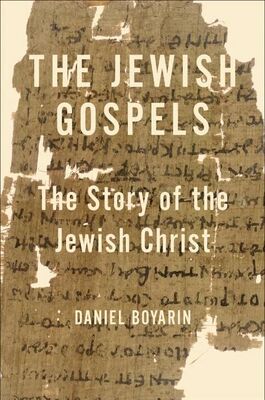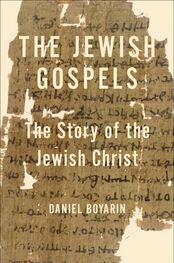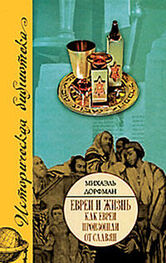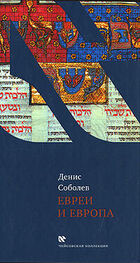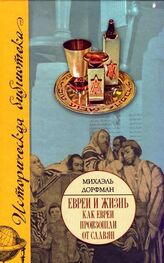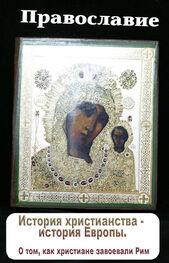Albert I. Baumgarten, "The Pharisaic Paradosis," HarvardTheobgical Review 80 (1987): 63-77.
This is close to the view of Sean Freyne, Galilee, from Alexander the Great to Hadrian, 323 B. C. E. to 135 C. E.: A Study of Second Temple Judaism, University of Notre Dame Center for the Study of Judaism and Christianity in Antiquity, 5 (Wilmington, DE: M. Glazier, 1980), 3 1 6 - 1 8 , 3 2 2 .
Weston La Barre, The Ghost Dance: Origins of Religion (London:Allen and Unwin, 1972), 254
Joseph Klausner, "The Jewish and Christian Messiah/' in TheMessianic Idea in Israel, from Its Beginning to the Completion of the Mishnah, trans. W. F. Stinespring (New York: Macmillan, 1955), 519-31.
See Martin Hengel, "The Effective History of Isaiah 53 in the Pre—Christian Period," in The Suffering Servant: Isaiah 53 in Jewish and Christian Sources, ed. Bernd Janowski and Peter Stuhlmacher, trans. Daniel P. Bailey (Grand Rapids, MI: William B. Eerdmans, 2004), 137-45, for good arguments to this effect. Hengel concludes, "The expectation of an eschatological suffering savior figure connected with Isaiah 53 cannot therefore be proven to exist with absolute certainty and in a clearly outlined form in pre-Christian Judaism. Nevertheless, a lot of indices that must be taken seriously in texts of very different provenance suggest that these types of expectations could also have existed at the margins, next to many others. This would then explain how a suffering or dying Messiah surfaces in various forms with the Tannaim of the second century C. E., and why Isaiah 53 is clearly interpreted messianically in the Targum and rabbinic texts" (140). While there are some points in Hengel's statement that require revision, the Targum is more a counterexample than a supporting text, and for the most part he is spot on.
Hengel, "Effective History/' 133-37, even makes a case that the Septuagint (Jewish Greek translation) to Isaiah (second century B. C. ) may already have read the Isaiah passage as referring to the Messiah .
While it is universally acknowledged that w. 14:61-64 are an unambiguous allusion to Daniel 7:13, scholars who cannot abide the idea that Jesus himself claimed messianic status or to be the Son of Man have either denied that these could have been Jesus' true words (Lindars) or understood them as Jesus speaking about someone else (Bultmann) (and see 13:25 as well). The clear sense of these words, however, as written by Mark in his Gospel is that here Jesus speaks of himself.
I do not know early evidence outside of the Gospels for this particular way of reading the Daniel material as applying to a suffering Messiah, still less to a dying and rising one, and I have no reason to think that it did not fall into place in this particular Jewish Messianic movement. (As we shall see below, however, the reading of this as referring to the Messiah is not unknown to later rabbinic Judaism, not at all.) It should be noted that also in Fourth Ezra, discussed above in chapter 2, an enemy arises to the Messiah, an enemy eventually defeated by him forever and ever
This punctuation is Wellhausen's, as reported in Joel Marcus, The Way of the Lord: Christological Exegesis of the Old Testament in the Gospel of Mark (Louisville, KY: Westminster/John Knox Press, 1992), 99.
Marcus's great insight was that the Gospel text thematizes the contradiction. He somewhat goes off track in the beginning of his discussion by citing (in the way of Dahl) the tannaitic rule of "two verses that contradict each other"; the correct comparison is to the midrashic form of the Mekhilta, which is given later. This initial confusion has some consequences, for which see below.
From here on, I will be following Marcus quite closely. Marcus, W ay of the Lord, 106
It should be noted that in some respects the Matthean parallel goes in quite a different direction from Mark, especially by leaving out the crucial "It is written" statements in both instances. There is no midrash in Matthew here at all. For other entailed differences in this passage between the second and the first Gospels, see W. D. Davies and Dale C. Allison Jr., A Critical and Exegetical Commentary on the Gospel According to Saint Matthew, International Critical Commentary (Edinburgh: T & T Clark, 1988), 712. If Marcus and I are right, then Mark is much closer to a Jewish hermeneutical form than Matthew at this point.
Origen, Contra Cekum, trans, with an introduction and notes by Henry Chadwick (Cambridge: Cambridge University Press, 1965), 50.
The word for "disease" here means "leprosy" throughout rabbinic literature and is translated leprosus by Jerome as well (for the latter reference, see Adolph Neubauer, The Fifty—Third Chapter of Isaiah According to the Jewish Interpreters (Oxford: J. Parker, 1876-1877), 6.
I am not claiming that therefore the followers of Jesus did not originate this particular midrash, rather, if and when they did so, the hermeneutical practice they were engaged in bespoke in itself the "Jewishness" of their religious thinking and imagination.
Martin Hengel, "Christianity as a Jewish—Messianic Movement," in The Beginnings of Christianity: A Collection of Articles, ed. Jack Pastor and Menachem Mor (Jerusalem: Yad Ben—Zvi Press, 2005), 85, emphasis in original.
